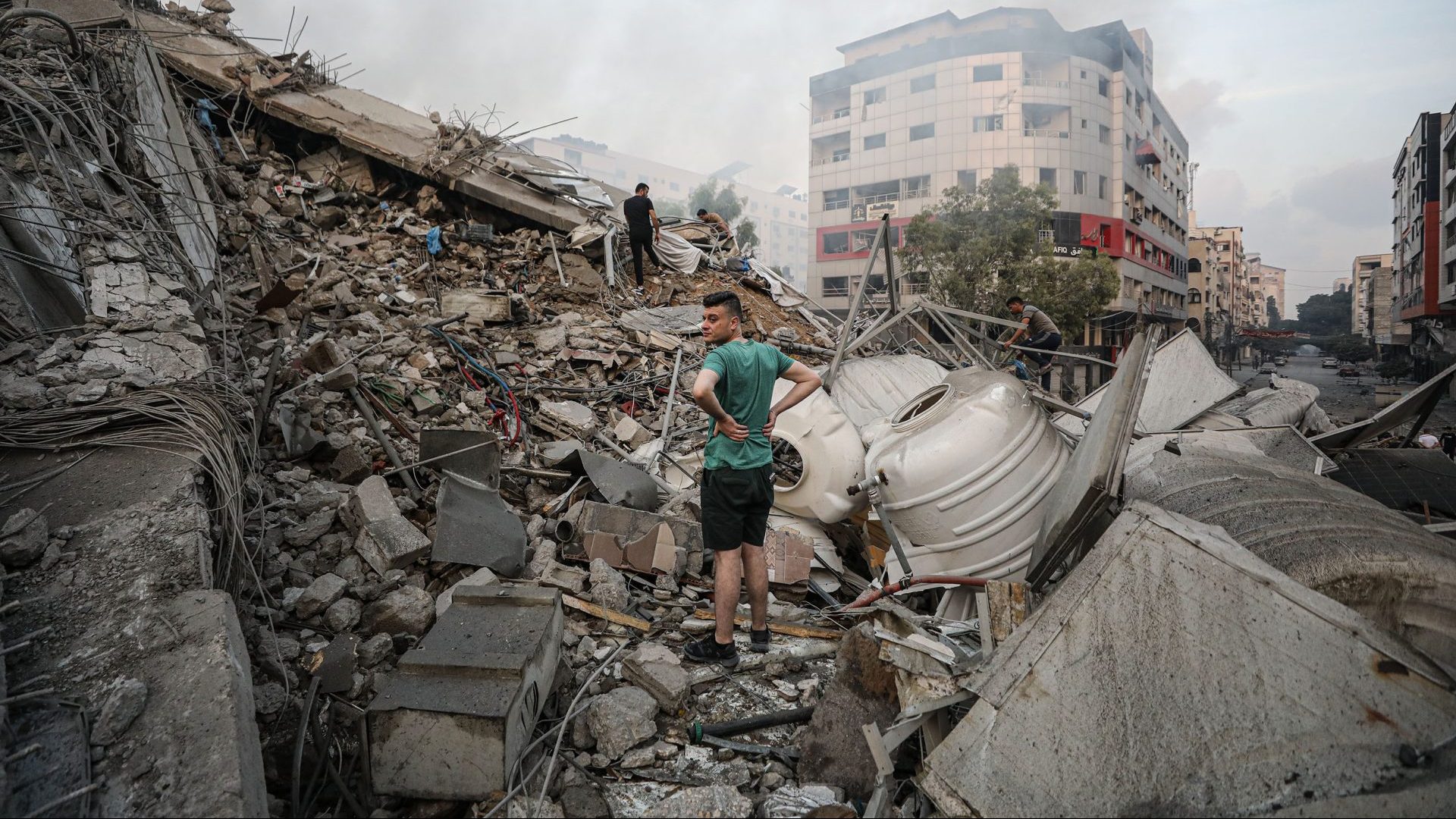During the 50th anniversary of Israel’s greatest intelligence failure, the joint surprise attack from Egypt and Syria that launched the Yom Kippur War in October 1973, there appears to have been another major failure of intelligence.
Israel has been surprised again by an ambitious operation launched from the Gaza Strip, the small enclave hugging the Mediterranean Sea that since 2007 has been de facto governed by Hamas, which claims to represent the State of Palestine and the Palestinian people. The attack has seen Hamas militants combine an unprecedented volume of rocket attacks with a ground offensive that has seized settlements and taken hostages. At least 250 people in Israel have been killed, and more than 1,100 have been taken to hospitals. Already, more than 230 people have been killed in retaliatory Israeli strikes against Gaza.
There are similarities between both offensives. As with the offensive of 1973 when the Egyptian army used water cannons to destroy the Israeli sand barriers in the Sinai, Hamas militants scaled what was assumed as impenetrable defences when they simply bulldozed through the barbed-wire topped border smart barrier, by-passing the cameras, ground-motion sensors, and regular army checkpoints, and poured into Israel via the sea and by paraglider.
As with missing the complex build-up of Egyptian and Syrian forces, whose deception plans which involved repeated exercises in the months beforehand turned out to be so effective, Israeli intelligence seems to have missed the stockpiling of thousands of rockets and the amassing of a Hamas ground attack force. The operational security of Hamas, keeping their plans secret from the network of Israeli intelligence assets, must be seen as comparable to that of Egypt and Syria in 1973.
In the coming days arguments will continue to rage over whether such actions are justified acts of violent resistance against an occupying force or simply brutal acts of terrorism against innocent civilians. The horrific images of dead Israeli soldiers being dragged into the street and gunmen shooting random passers-by are likely to influence international opinion to a much greater degree than any such badly timed theoretical arguments and be burnt into the tragic memory of our collective consciousness of a region that peace endlessly evades for a much longer period. The terror that those that are held hostage are now experiencing should not be wished on anyone, regardless of your political or religious beliefs.
The end result of the Hamas attacks will likely be days of retaliation and more death in a region where the contested land is already soaked in the blood of several generations. Israel’s PM Benjamin Netanyahu has stated, “We are at war,” going on to say that “Israel will settle the score with anyone who harms them.” For those seeking to justify these attacks, this most practical consideration, that they will achieve little other than the unleashing of much more bloodshed, should cause pause for thought. There are nervous glances north in the direction of Lebanon and Hezbollah, to see if they will join Hamas’ fight, widening the conflict further.
The events of the last twenty-four hours may well be still debated in another fifty years. In the short term, however, there will no doubt be more suffering. This suffering will impact those who hold political power in the region as much as those who feel violence is their only way of being heard. Unlike in 1973 when the conflict led to the Camp David accords, which saw Sinai returned to Egypt, and the 1979 Egypt-Israel peace treaty, marking the first instance of an Arab country recognized Israel as a legitimate state, this new conflict is likely to just cause spiraling retaliatory violence and a widening of this ancient divide.










